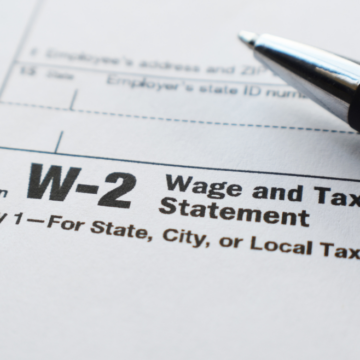Credit counseling provides personalized support to help you manage debt, create budgets, and set financial goals.
Nonprofit credit counseling services often offer low-cost or free assistance, focusing on helping clients rather than making a profit.
Debt Management Programs (DMPs)Debt Management Programs (DMPs) can simplify your repayment process by negotiating lower interest rates and consolidating payments into one monthly sum.
Credit Counseling Basics
Credit counseling is like having a personal financial coach by your side, guiding you through the maze of debt and helping you understand various solutions for dealing with credit card debt and other challenges. The main goal? To provide you with a structured approach to regain control of your finances. And if current headlines are any indication, many of us could use some support.
The National Foundation for Credit Counseling (NFCC) recently released its latest Financial Stress Forecast, revealing that a recent surge in consumer financial distress is likely to continue into 2025 (Credit card debt alone increased by $24 billion to $1.17 trillion). This is where credit counselors enter the chat.
Certified credit counselors analyze your debts and provide guidance on avoiding future financial imbalances. Most credit counseling services are offered by nonprofit organizations, making them accessible with low or no associated fees. For example, GreenPath doesn’t charge fees for counseling sessions, which last about an hour each.
What to Expect in a Credit Counseling Session
When you first contact a credit counseling agency, you’ll be paired with a certified credit counselor who will discuss your specific needs and goals. It’s important to choose a time for your counseling session that allows for a thorough, uninterrupted discussion.
The session will begin with a one-on-one reviewone-on-one review of your financial goals and budget. Keep in mind that there is no one-approach-fits-all: your counselor looks specifically at your current situation. The credit counselor will then provide actionable steps for improving your financial situation based on this assessment, helping you to move closer toward achieving your goals.
Being well-prepared ensures you get the most out of your credit counseling session. Gather all relevant financial information, such as recent bills, statements, and income details, to provide a clear picture of your financial standing. Follow-up from the counselor will occur to check on your progress and make any necessary adjustments to your plan.
Benefits of Credit Counseling Services
Engaging with credit counseling services provides professional guidance to manage your finances effectively. Credit counselors help individuals develop strategies to pay off debts while offering peace of mind through structured financial plans.
One of the significant benefits of credit counseling is assistance with budgeting and managing spending. Credit counselors can negotiate lower interest rates with creditors, leading to significant savings on debt payments. This negotiation can make a huge difference, especially for those dealing with high-interest credit card debt.
Nonprofit credit counseling agencies often provide these services at little to no cost, making them accessible to individuals with low income. These agencies offer tailored plans and assistance, ensuring that everyone who needs help can get it. Whether you’re looking for debt relief or aiming to improve your financial literacy, credit counseling services can provide the support you need.
How to Prepare for Your First Credit Counseling Session
It can’t be overstated that preparation goes a long way toward a successful credit counseling session. Start by monitoring your expenses to understand where your money goes each month. Identify all possible income sources, such as salary, rentals, and support payments, to get a clear picture of your earnings. Gather recent bills and statements to accurately track your debts and obligations.
A detailed budget is key to managing your finances effectively. A budget helps you allocate your income towards expenses, savings, and debt repayment in a balanced manner. Regularly reviewing and adjusting your budget as necessary can help you stay on track with your financial goals.
Focus on specific financial goals during the counseling process. Whether your aim is debt reduction, savings, or better money management, having clear goals will guide your spending and saving decisions. Utilize free budgeting apps to maintain financial discipline and track your spending habits.
Questions to Ask a Credit Counseling Agency
Before choosing a credit counseling agency, it’s important to ask the right questions to ensure you are getting the best service possible.
Accreditation: Is the agency accredited by a recognized organization, such as the National Foundation for Credit Counseling (NFCC) or the Association of Independent Credit Counseling Agencies (AICCA)?
Credentials and Experience: What are the credentials and experience of the credit counselors, including any certifications they hold?
Services Provided: Do they offer the following?
- Budgeting assistance
- Debt management programs
- Credit report reviews
- Personalized plans
- Educational resources and workshops on financial management
Fee Structure:
- Detailed breakdown of all fees associated with their services, including any set-up fees or ongoing costs
- Sliding scale for fees based on income or other circumstances
- Support and Follow-Up: What level of support can you expect after the initial counseling session, and how often will you receive follow-up contact?
Nonprofit vs. For-Profit Credit Counseling Agencies
Differentiating between nonprofit credit counseling organizations and for-profit credit repair companies is essential. A credit counseling organization can often arrange lower interest rates and fees on behalf of clients, providing essential services at little to no cost. These organizations are usually driven by the mission to help individuals regain control over their finances rather than making a profit.
On the other hand, for-profit credit counseling agencies may prioritize profit over client welfare. While they can offer similar services, they typically charge higher fees and may not always have the client’s best interests in mind. Therefore, it’s crucial to research and choose a reputable agency that aligns with your financial needs and goals.
The Role of Debt Management Programs (DMPs) in Credit Counseling
A Debt Management Program (DMP)Debt Management Program (DMP) is a structured program designed to help you pay off debts faster through lowering interest rates and setting a repayment schedule. DMPs are usually managed by credit counseling agencies that work directly with creditors on your behalf. This often results in lower interest rates and waived fees, making it easier for you to manage future debt payments.
Under a DMP, you make a single monthly payment to the credit counseling agency, which then distributes the funds to creditors. This simplifies the repayment process and helps you avoid the stress of dealing with multiple creditors. DMPs generally aim for debt repayment within a three to five-year timeframe, providing a clearer path to becoming debt-free.
Impact of Credit Counseling on Your Credit Score
Credit counseling can affect your credit score in multiple ways, leading to both positive and negative changes. Seeking credit counseling does not negatively affect your credit score since simply asking for help has no effect. However, temporary dips in credit scores can occur during the credit counseling process as accounts are managed and potentially closed.
In the long term, once debts are cleared through a Debt Management Program (DMP), you will likely see improvements; maintaining low credit utilization and making timely payments can positively impact your credit score.
Keeping track of your credit report is vital when undergoing credit counseling. You can access your credit report for free once a year to keep track of your credit health. Consulting a credit counselor can provide valuable insights and strategies for improving your credit score and understanding the factors that influence it.
Signs You Might Need Credit Counseling
Certain financial behaviors and circumstances could suggest a need for credit counseling. For example, using one credit card to pay off another or living off credit to meet basic expenses are strong indicators that you might benefit from credit counseling. Are you repeatedly making only minimum payments without seeing any progress? A counselor can help you strategize some best practices moving forward.
Credit counseling is particularly beneficial for those facing challenges in making monthly debt payments or feeling overwhelmed by debt. If you’re missing credit card payments or find that your debt is unmanageable, you are not alone. And you are not without solutions.
Frequently Asked Questions
- What is the goal of credit counseling?
The goal of credit counseling is to help you manage debt and budget effectively, improving your overall financial health with structured plans and professional support. It’s all about getting on the right track with your finances. - How can I prepare for my first credit counseling session?
To make the most of your first credit counseling session, gather all your financial documents and track your spending to help create a structured budget. Setting clear financial goals ahead of time will make the conversation more productive and focused. - What are the benefits of engaging with a nonprofit credit counseling agency?
Engaging with a nonprofit credit counseling agency can help you manage your finances better, often at little to no cost. They can negotiate lower interest rates and fees, giving you a solid path to regain control of your financial situation. - How do Debt Management Programs (DMPs) work??
Debt Management Programs (DMPs) simplify your debt repayment by consolidating all your debts into one monthly payment to a credit counseling agency, which then pays your creditors for you. This approach often lowers interest rates, helping you pay off your debts more quickly. - Will credit counseling affect my credit score?
Credit counseling itself won’t hurt your credit score, though you might see a small dip during the process. In the long run, if you follow through and manage your debts well, your score could actually improve.
Connect with Us
GreenPath is a trusted national nonprofit with more than six decades of experience with credit counseling. Nearly 600 credit unions, banks and employers partner with us, and we serve all 50 states. Our friendly and empathetic NFCC-certified counselors are ready to offer guidance on spending, saving, housing services, and more.
You Might Also Be Interested In…
Demystifying Financial CounselingDemystifying Financial Counseling
What You Will Learn
- How financial counseling works
- Who benefits from financial counseling
- What you can expect when speaking with a financial counselor
GreenPath Financial Service
Free Debt Counseling
Take control of your finances, get tailored guidance and a hassle-free budgeting experience. GreenPath offers personalized advice on how to manage your money.










